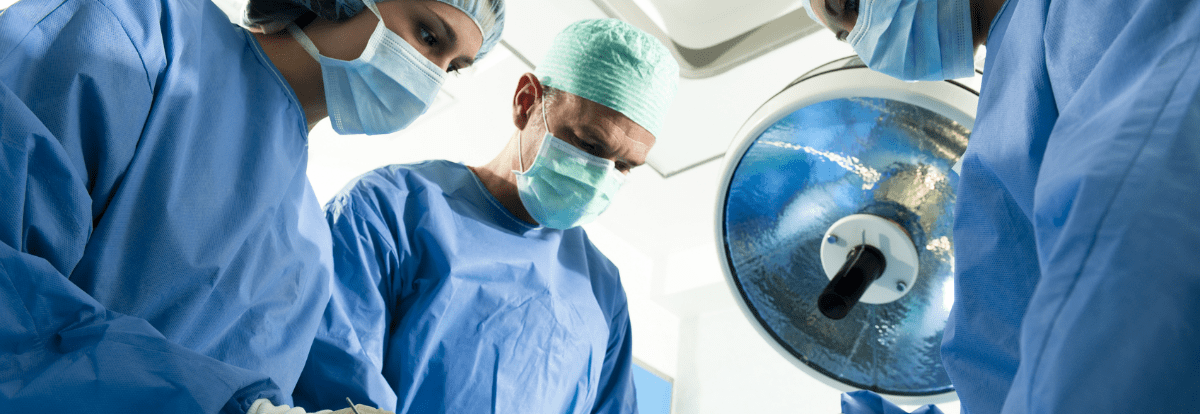Category: Health

Shrewsbury and Telford NHS Trust maternity scandal
Shrewsbury and Telford NHS Trust has been in the media recently over the maternity scandals and the condition of care and treatment provided for over a period of two decades.
The findings of the independent review are tragic and terrible, and we are left questioning how the scandal had been allowed to go on for so long. There can only ever be the hope that the conclusion of the investigations brings some form of closure to those affected, but nothing can change what has already been done. Some victims have been left with lifelong and permanent, serious injuries, and others did not survive as a result of negligence and inadequate care.

Compensation for revision surgery in Group Actions
Claimants engaged in group and multi-party legal actions can be entitled to recover compensation for revision surgery where this is an applicable factor.
As Group Action Specialists (hence our name – The Group Action Lawyers) we have recovered substantial damages to cover this element of a legal case where it has applied in the many group actions that we have launched. Victims of negligence can be entitled to recover such damages as a claim is designed to help them as much as is reasonably possible, so corrective treatment is sometimes a must.
For anyone who needs this factored into a legal case, we may be able to help you now on a No Win, No Fee basis.

Contaminated Products and Group Action Compensation
A group action claim for compensation could ensue for issues in respect of contaminated products, and anyone who has come to harm could be eligible to pursue a legal case.
Group Actions and Multi-Party Litigation matters are what we specialise in. Having recovered millions of pounds in damages for clients in civil cases for many years, and with thousands of happy clients having settled their cases, our experience speaks for itself.
We are always happy to assess potential cases for free, and we can also offer No Win, No Fee legal representation for eligible claimants.

Preventing medical implant problems is key for the future
It may sound obvious when we talk about the importance of preventing medical implant problems before mass scandals occur, but it is a key point to raise given our line of work.
As specialist Group Action Lawyers, we have represented thousands of people engaged in group and multi-party actions. Some of those have been for medical implant scandals, including the PIP Breast Implant Scandal, the Vaginal and Hernia Mesh issues, and the Metal-On-Metal Hip Implant cases. What this means is that we have seen first-hand just how badly patients can suffer when things go wrong, and we do not want to see a repeat of such scandals and the awful consequences that ensue. Whilst it can be difficult to prevent problems like the PIP Breast Implant cases where deceit was involved, preventing medical implant scandals through better testing and warnings is a development to push forward with.
It is easy to look back in hindsight and see what could have been done differently. But it is important to look to the future to make sure that there are no repeats of mistakes that could have been prevented.

Data breach group actions for accessing medical records inappropriately
Accessing medical records without any sound reason to do so, and/or without authority to do so, can constitute a breach of vital data protection laws. Where this happens on a large scale, many people may be eligible to join their claims to form a group or multi-party action.
Data breach group actions is a particular area of law that we have a great deal of experience in, and we represent thousands of clients who are currently engaged in dozens of them with us. For eligible clients, we work on a No Win, No Fee basis, and we are pursuing actions right now where the breach stemmed from medical records being inappropriately accessed.
Our medical records contain some of the most personal and sensitive information about us that there can be. It is so important that they are protected from misuse and exposure, and when this happens we know that victims can suffer from considerable distress. The law can allow victims to claim data breach compensation for such distress, and we can represent victims for legal cases.

Cyberattacks targeting medical devices: a cause for concern?
The idea of cyberattacks targeting medical devices is not so much a theory nowadays, but more of a real cause for concern that needs to be addressed.
As specialist Group Action Lawyers, we are used to seeing the harm caused to real people when things go wrong on a large scale. Whilst we are always here to help, prevention is always better than having to deal with the aftermath. As such, hacks and how they apply to an increasingly digitised world is something that we all need to be wary of; especially when it comes to the healthcare sector.

Mass medical negligence claims for compensation
Mass medical negligence claims for compensation can be the important avenue for some form of justice when a person is harmed as a result of avoidable negligence.
We have advised and represented a lot of people for these kinds of legal cases, and we are proud to offer No Win, No Fee legal representation as part of our commitment to access to justice. The specialist team is here to listen to you if you need free, no-obligation advice about existing claims or new class actions.
You could be owed tens of thousands of pounds in damages, so make sure you step forward to claim what you could be owed.

Sterility problems and compensation actions
Anyone who has been adversely affected by sterility problems could be entitled to pursue a claim for personal injury compensation on a No Win, No Fee basis.
As a firm of specialist Group Action Lawyers, we have represented many victims for issues concerning the sterility of equipment and devices, and there have been plenty of regulatory recalls over the years where this has been the issue.
A single event or a prolonged problem where an issue over sterility occurs could lead to thousands of people being put at risk. Anyone who has ever suffered harm in this way could be entitled to pursue a claim for damages.

The wider importance of our emissions actions
Our emissions actions now number at over 30 in terms of the number of carmakers that we are taking legal cases forward for, representing thousands of people on a No Win, No Fee basis.
Whilst action for justice for the consumers is important and is an integral part of what we are doing, it is also incredibly important to recognise the wider importance of the action that we are taking. It is about punishments and deterrents and, given the impact that cheating emissions can have on human health and on our environment, our work is vital.

Compensation for medicine recalls
You can be entitled to claim compensation for medicine recalls if you have suffered some form of harm or injury arising from an issue with medicines that you have taken.
If something has gone wrong and the fault lies with the manufacturer, seller, or even someone administering medicine, you could be entitled to pursue a legal case. We can offer No Win, No Fee legal representation, and you can speak to the team here for free, no-obligation advice.